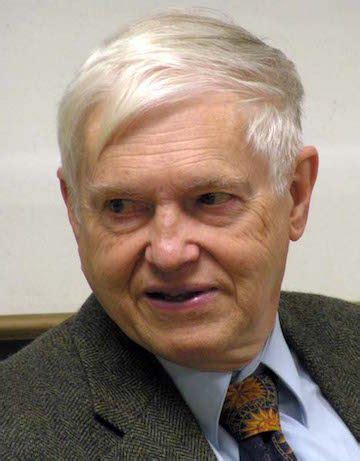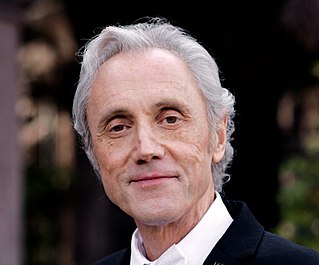A Quote by Paul Davies
Wheeler hopes that we can discover, within the context of physics, a principle that will enable the universe to come into existence "of its own accord." In his search for such a theory, he remarks: "No guiding principle would seem more powerful than the requirement that it should provide the universe with a way to come into being." Wheeler likened this 'self-causing' universe to a self-excited circuit in electronics.
Related Quotes
The universe shows us the life of God, or rather it is in itself the life of God. We behold in it his permanent action, the scene upon which his power is exercised, and in which all his attributes are reflected. God is not out of the universe any more than the universe is out of God. God is the principle, the universe is the consequence, but a necessary consequence, without which the principle would be inert, unfruitful, impossible to conceive.
Every being has its own interior, its self, its mystery, its numinous aspect. To deprive any being of this sacred quality is to disrupt the total order of the universe. Reverence will be total or it will not be at all. The universe does not come to us in pieces any more than a human individual stands before us with some part of his/her being.
Science may explain the world, but we still have to explain science. The laws which enable the universe to come into being spontaneously seem themselves to be the product of exceedingly ingenious design. If physics is the product of design, the universe must have a purpose, and the evidence of modern physics suggests strongly to me that the purpose includes us
A scenario is suggested by which the universe and its laws could have arisen naturally from nothing. Current cosmology suggests that no laws of physics were violated in bringing the universe into existence. The laws of physics themselves are shown to correspond to what one would expect if the universe appeared from nothing. There is something rather than nothing because something is more stable.
The universe must be experienced as the Great Self. Each is fulfilled in the other: the Great Self is fulfilled in the individual self, the individual self is fulfilled in the Great Self. Alienation is overcome as soon as we experience this surge of energy from the source that has brought the universe through the centuries. New fields of energy become available to support the human venture. These new energies find expression and support in celebration. For in the end the universe can only be explained in terms of celebration. It is all an exuberant expression of existence itself.
Buddha has said to his disciples: Whenever you meditate, after each meditation, surrender all that you have earned out of meditation, surrender it to the universe. If you are blissful, pour it back into the universe - don't carry it as a treasure. If you are feeling very happy, share it immediately - don't become attached to it, otherwise your meditation itself will become a new process of the self. And the ultimate meditation is not a process of self. The ultimate meditation is a process of getting more and more into un-self, into non-self - it is a disappearance of the self.
What will be required to increase the quality of life and health is a coming together of technology and values, based on a scientific guiding principle that people can agree on. Securing a healthy global future requires this guiding principle to preserve freedom of spirit yet be as provable as the laws of physics. A guiding principle that addresses the meaning of life and is compelling enough to generate social cohesion and behaviors that serve the greater whole. After thirty years of investigation and research, it has become clear to me that the answer lies within the human heart.
[Having] appropriated to itself all conscious intelligence in the universe ...Man faces the existential crisis of being a solitary and mortal conscious ego thrown into an ultimately meaningless and unknowable universe ...and the psychological and biological crisis of living in a world that has come to be shaped in such a way that it precisely matches his world view-i.e., in a man-made environment that is increasingly mechanistic, atomized, soulless, and self-destructive.
To study the Way is to study the Self. To study the Self is to forget the self. To forget the self is to be enlightened by all things of the universe. To be enlightened by all things of the universe is to cast off the body and mind of the self as well as those of others. Even the traces of enlightenment are wiped out, and life with traceless enlightenment goes on forever and ever




































